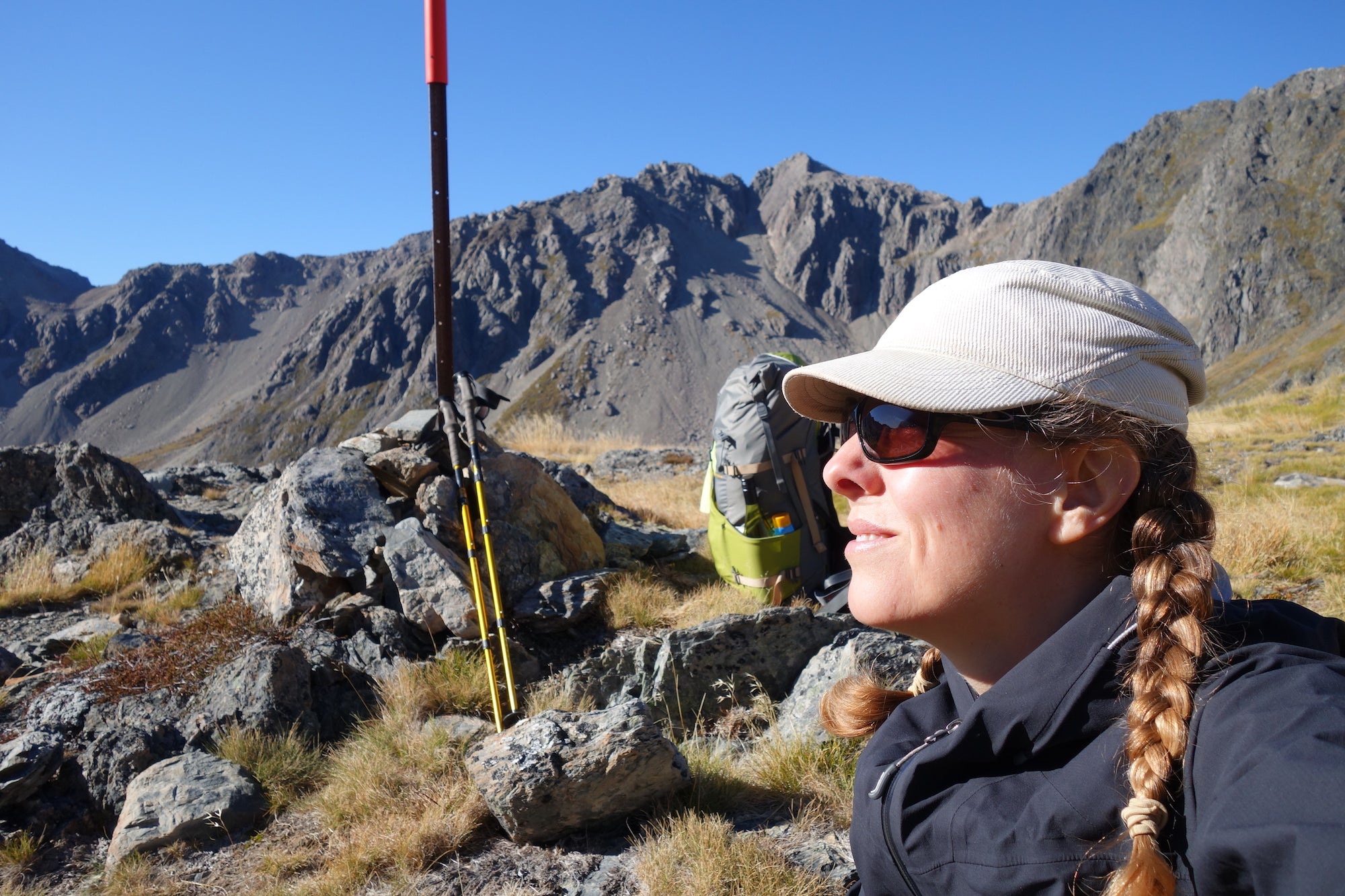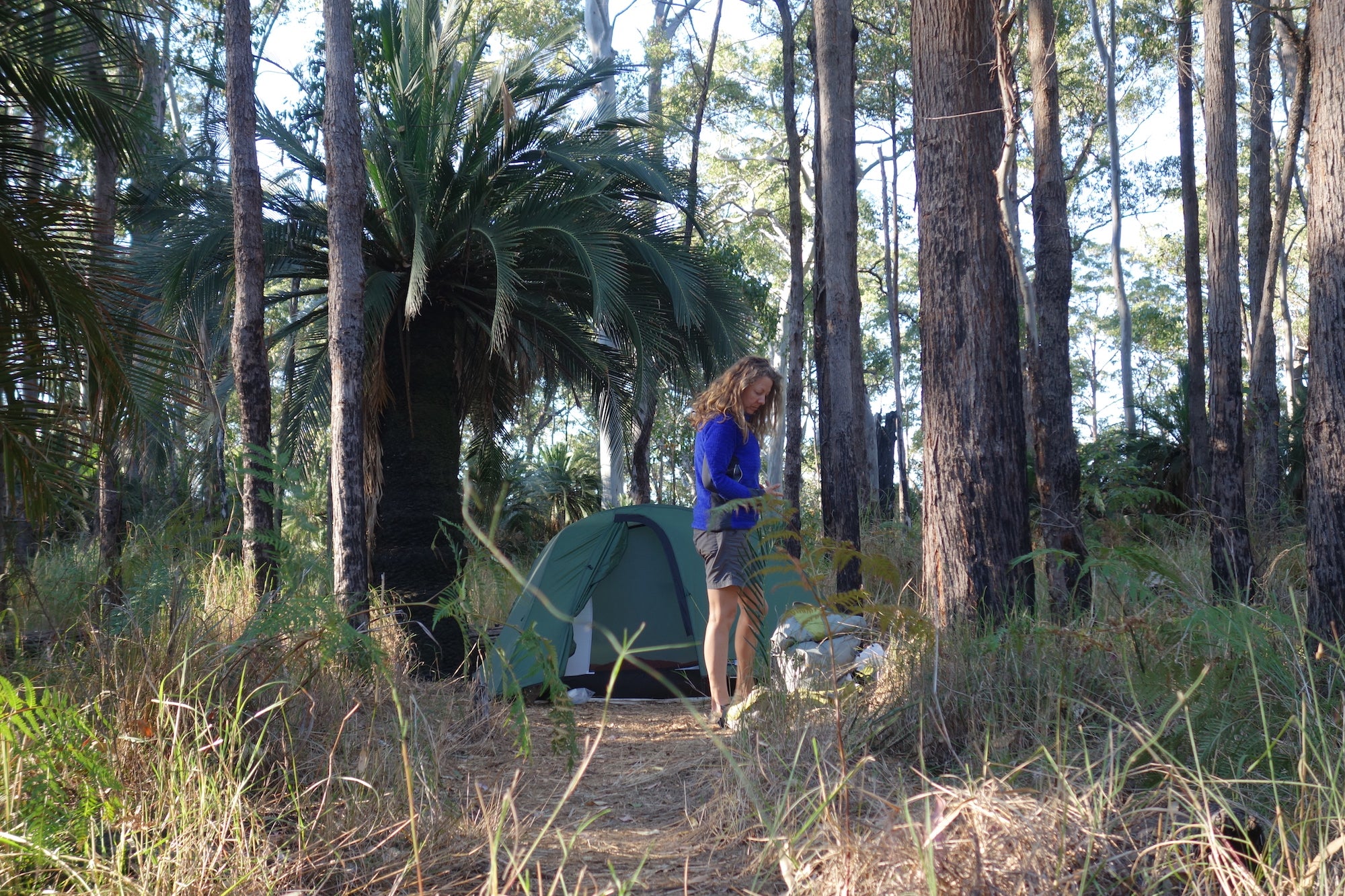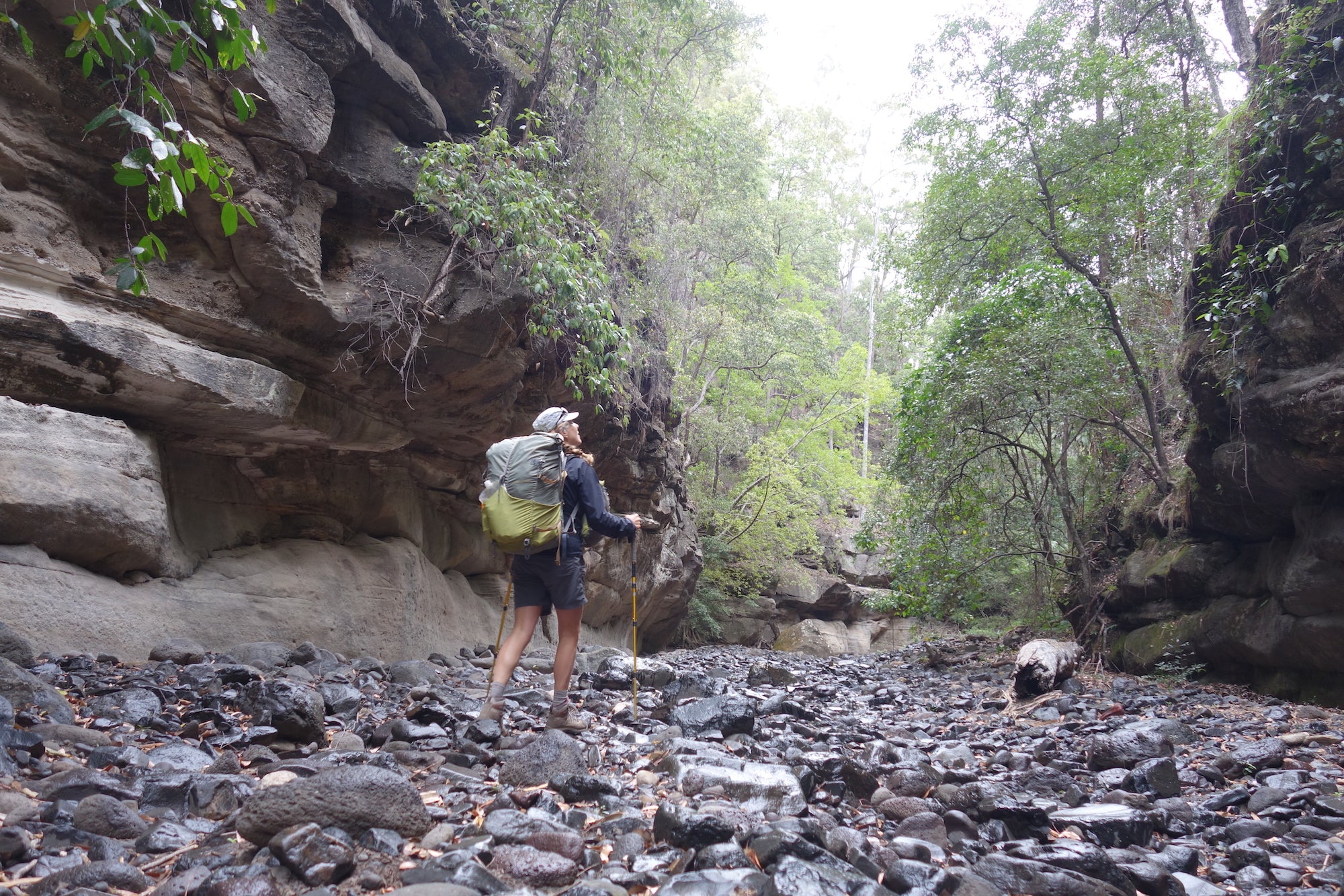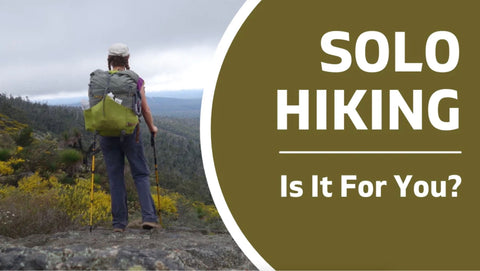
How To Manage Solo Hiking Fears & Dangers
by Laura Waters
You often see comments on forums from solo hikers anxious about heading out on their own. Should they do it? Is it dangerous? Has anyone else done it solo?
Years ago I made plans to hike Te Araroa, a 3,000km/5-month epic down the entire length of New Zealand that has exposed mountain tops, countless unbridged river crossings and, at times, no ground trail to follow. Convinced I couldn’t do it on my own, I coerced a girlfriend to join me. She pulled out on the second day. It forced me to face the reality of hiking alone and though it certainly had its challenges, it wasn’t as bad as my brain had imagined it to be. Ultimately, I succeeded, and I’ve happily hiked thousands more kilometres solo since.
Hiking alone isn’t for everybody but if you can put fear aside - and you have the skills and experience - it is incredibly rewarding and fun.
Understand the risk
There is increased risk when walking alone but it doesn’t have to be prohibitive. Risks can be mitigated with experience and sound decision-making. More than ever, this is a time to choose an appropriate route for your ability, go in good weather conditions, carry adequate safety/first aid gear, and make conservative decisions. Read 7 Tips for Solo Hiking for the full rundown.
Fear is all in the mind
If you’re worried about going it alone, observe if you’re concerned about something specific or whether it’s just a general fear of the unknown. Fear is a survival instinct pretty much instilled in us from birth. It’s there to help protect us by making us alert to danger and preparing us to deal with whatever challenges we face.
While we are wired to look for danger, our fears can sometimes get blown out of all proportion (we have great imaginations!) and prevent us from doing anything at all. Before my New Zealand hike I had a very long list of all the things that could go wrong (losing my way, falling off a mountain top, getting swept away in a river) and had my friend not agreed to come with me I doubt I’d have had the courage to attempt it, but in eventually facing those fears I overcame them. It made me realise it’s not worth wasting energy and brain-power fretting on the unknown. Better to get all the facts first and assess things rationally – without fear.

Managing other peoples opinions
Aside from our own concerns is other people’s. The oft-touted advice is not to walk alone and well-meaning friends, family and even other hikers may plant the seeds of doubt in our minds that could prevent us from having a good time. Comments like “You can’t go alone” or “Ooh, I hear it’s hard”. Such comments are often not based on any fact or personal knowledge but rather a generic belief system broadly adopted by society. When accepting advice, consider if the person delivering it knows anything about the terrain/location you’re considering? Do they understand what your skills and experience are? Are they passing on valuable insights or just regurgitating commonly-held beliefs? Learn to separate real risks from ‘story’.
Have you got what it takes?
All the above is not to say you should ignore all advice and head out all gung-ho and fearless. It just means looking at a situation objectively. Do your due diligence (research the trail, the terrain you’ll encounter, weather conditions, identify any known hazards like river crossings or exposure, etc) then compare the potential dangers and risks against your own fitness and skillset. Have you genuinely got what it takes?
What exactly are the hazards of hiking alone?
Basically, there’s no one who’s got your back. You, and you alone, will be the decision maker when it comes to things like route finding, assessing weather and river crossings, or choosing appropriate campsites. It’s you who will need to negotiate yourself over tricky terrain, you who will need to tend to any injuries or figure out how to get rescued in the event of an accident.

Things that go bump in the night
For many, it’s not the fear of hiking solo that bothers them but camping solo. That’s when our imaginations run riot, alert to every rustle and crack of a branch. Things seem louder in the dark and we’re prone to creating stories about what could be going on on the other side of that flimsy piece of nylon that is our ‘home’ and our only protection. Is that a man-eating animal scratching about outside? (no matter if none exist where you are) Is it an axe murderer? (you’re more likely to be struck by lightening). We’re wired to be alert to danger but recognise that our brains often give far more weight to such remote possibilities than they deserve.
Something for the ladies
Women in particular can hold more fear about hiking solo (or at least they’re more likely to voice their concerns about it) but know that there are many, many women who do so all the time and are just fine. Women are smart and capable. The only scenario where we’re potentially more vulnerable is in an encounter with another not-so-friendly human but that risk is remote (see above), and even more so if you’re camping well away from road access. If you’re at all concerned, set up camp on dusk (when the likelihood of new visitors passing through is reduced) and do it in a discreet location.

In summary…
Assuming you have the skills, knowledge and experience, recognise the risks of solo hiking but don’t let fear prevent you from heading out alone. Walking solo means you can go where you want, when you want, on your terms. There’s incredible freedom in it, and in facing fears on the trail you may find yourself bringing some of that courage back home to your everyday life. It can be a game-changer.
READ MORE


Leave a comment